


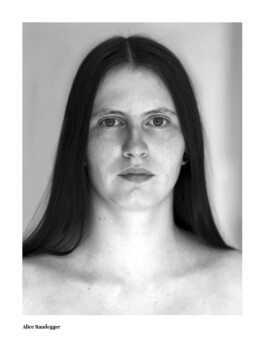
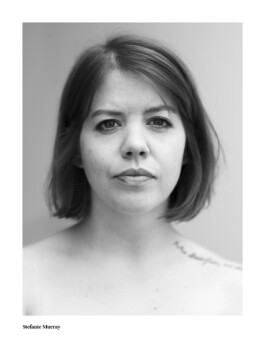
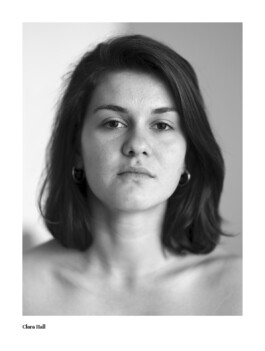
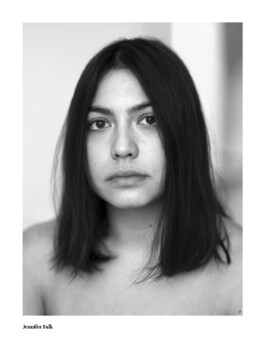
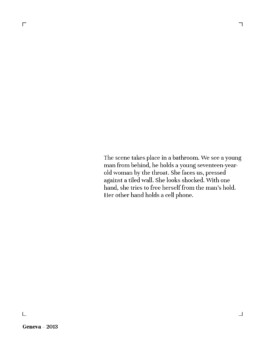
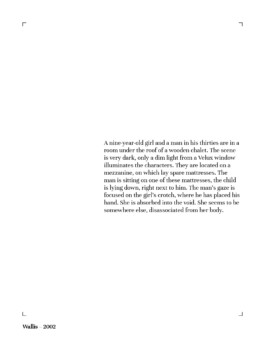
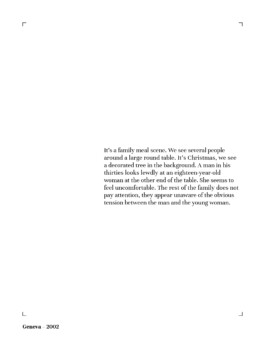
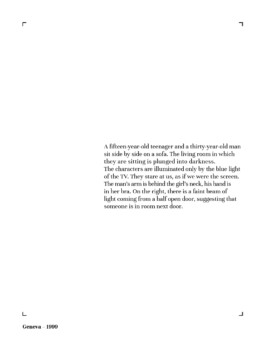
According to a survey by Amnesty International, one out of five women in Switzerland has experienced non-consensual sex, and more than one out of ten women have experienced sex against her will*. When I asked the women close to me who were concerned by these statistics, I realized that these figures were true and I decided to dedicate a work to their stories. As a young woman photographer, I feel it is essential to address this problematic and systemic social fact because, as an author, curator, and photography theorist Ariella Azoulay has said: The lack of visual imagery of violence against women has for years contributed to society’s ignorance – and even more so to the tolerance – of this kind of violence. * Results of a representative survey conducted between 16 March and 15 April 2019 in Switzerland among some 4500 women (aged 16 and over) by the research institute gfs.bern on behalf of Amnesty International.
is an engaged documentary photographer living in Geneva and working in French-speaking Switzerland. She was formed at the Vevey School of Photography, from which she graduated in 2020. In her practice, she uses photography as a sensitive channel to convey messages on social issues and to give visibility to intimate and taboo subjects.
alinebovardrudaz.com
@aline.brz
Laurence Rasti
Le projet «Invisible Violence» est terrifiant par sa simplicité. Cette dernière se retrouve dans l’esthétique des images, la proposition d’accrochage ou la conception du projet, qui n’a pas eu besoin d’aller chercher des témoignages très loin. Cette facilité, qui n’en est pas une, confirme la nécessité de ce travail. Aline Bovard Rudaz le souligne d’ailleurs, à travers les mots d’Ariella Azoulay: le manque d’imageries des violences contre les femmes contribue à la tolérance de ces actes. Il y a une belle cohérence et un respect de l’autre dans ce travail. Chaque détail est réfléchi. Il permet aux personnes de sortir de l’anonymat, sans besoin d’être confrontées à l’individualité de leurs récits grâce à la force du collectif.








According to a survey by Amnesty International, one out of five women in Switzerland has experienced non-consensual sex, and more than one out of ten women have experienced sex against her will*. When I asked the women close to me who were concerned by these statistics, I realized that these figures were true and I decided to dedicate a work to their stories. As a young woman photographer, I feel it is essential to address this problematic and systemic social fact because, as an author, curator, and photography theorist Ariella Azoulay has said: The lack of visual imagery of violence against women has for years contributed to society’s ignorance – and even more so to the tolerance – of this kind of violence. * Results of a representative survey conducted between 16 March and 15 April 2019 in Switzerland among some 4500 women (aged 16 and over) by the research institute gfs.bern on behalf of Amnesty International.
is an engaged documentary photographer living in Geneva and working in French-speaking Switzerland. She was formed at the Vevey School of Photography, from which she graduated in 2020. In her practice, she uses photography as a sensitive channel to convey messages on social issues and to give visibility to intimate and taboo subjects.
alinebovardrudaz.com
@aline.brz
Laurence Rasti
Le projet «Invisible Violence» est terrifiant par sa simplicité. Cette dernière se retrouve dans l’esthétique des images, la proposition d’accrochage ou la conception du projet, qui n’a pas eu besoin d’aller chercher des témoignages très loin. Cette facilité, qui n’en est pas une, confirme la nécessité de ce travail. Aline Bovard Rudaz le souligne d’ailleurs, à travers les mots d’Ariella Azoulay: le manque d’imageries des violences contre les femmes contribue à la tolérance de ces actes. Il y a une belle cohérence et un respect de l’autre dans ce travail. Chaque détail est réfléchi. Il permet aux personnes de sortir de l’anonymat, sans besoin d’être confrontées à l’individualité de leurs récits grâce à la force du collectif.